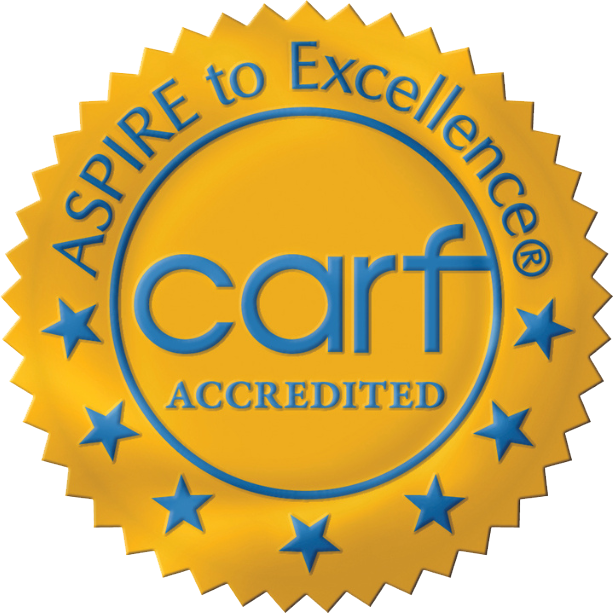According to the World Health Organization, stroke is the second leading cause of death globally, with millions of people suffering from stroke-related disabilities each year. For those who survive a stroke, the road to recovery can be long and challenging, requiring support and care from various sources. This is where nursing homes play a vital role in supporting stroke patients and helping them regain their independence and quality of life.
This page will explore how nursing homes support stroke patients and the benefits of care in these facilities. So, let’s dive in and discover how nursing homes for stroke patients can make a significant impact on stroke recovery.

What is a stroke?
A stroke occurs when the blood flow to the brain is disrupted, either by a clot or a burst blood vessel. As a result, the brain cells start to die due to lack of oxygen and nutrients. This can lead to permanent brain damage or even death. Strokes are a leading cause of disability and the fifth leading cause of death in the United States.
The symptoms of a stroke can vary depending on which part of the brain is affected but commonly include sudden weakness or numbness in the face, arms, or legs, difficulty speaking or understanding, and vision impairment.
Some risk factors for stroke include high blood pressure, smoking, diabetes, and obesity. Leading a healthy lifestyle and managing these risk factors can significantly reduce the chances of having a stroke. Early detection and treatment are crucial in decreasing a stroke’s severity and potential damage.
Challenges faced by stroke patients
While stroke is a medical emergency that requires immediate attention, its effects can be long-lasting and challenging for patients to cope with. Here are the top challenges stroke patients face and provide valuable tips for overcoming them.
- Physical limitations
One of stroke patients’ most significant challenges is physical limitations. Depending on the severity and location of the stroke, patients may experience weakness or paralysis in one side of their body, making it challenging to perform daily activities such as walking, dressing, or feeding themselves. This physical limitation can be frustrating and affect the patient’s overall quality of life.
✔ Tip: Physical therapy in Clinton Township can help stroke patients regain strength, mobility, and independence. With the help of a licensed therapist, patients can work on regaining muscle strength and practicing daily tasks to improve their physical abilities. If you’re searching for a trusted “physical therapy near me,” trust Progressions Rehabilitation to support the unique needs of stroke patients and their recovery journey.
- Difficulty with communication
Another common challenge for stroke patients is difficulty with communication. A stroke can damage the speech and language center of the brain, making it challenging to express thoughts and communicate effectively. This can lead to patient frustration and isolation, impacting personal and professional relationships.
✔ Tip: Speech therapy can help stroke patients regain their communication skills. If needed, a speech therapist can work with the patient to improve speech, language, and cognitive abilities and develop alternative communication strategies.
- Emotional changes
A stroke can also bring significant emotional changes for the patient. It is not uncommon for stroke survivors to experience depression, anxiety, or anger due to the changes in their health and lifestyle. These emotions can also result from damage to the brain’s emotional processing center.
✔ Tip: Seeking therapy or joining a support group can be beneficial for stroke patients dealing with emotional changes. Talking to a professional or connecting with others who have gone through a similar experience can help patients cope with their emotions and feel less isolated.
- Cognitive impairment
Cognitive impairment is another challenge that stroke patients often face. The damage to brain cells can affect memory, thinking, and decision-making abilities. This can make it challenging to return to work or perform daily tasks requiring mental sharpness, leading to frustration and loss of independence.
✔ Tip: Occupational therapy can help stroke patients improve their cognitive skills and learn strategies to overcome difficulties. This therapy also focuses on adapting the surrounding environment to make it more manageable and safe for the patient.
- Financial burden
The economic impact of stroke can also be a significant challenge for patients and their families. The cost of medical treatment, rehabilitation, and long-term care can quickly add up and become a financial burden for stroke survivors. This can also lead to anxiety and stress, impacting the patient’s recovery process.
✔ Tip: Consult with a financial advisor or contact local organizations for financial assistance programs for stroke patients. It is also crucial for patients to communicate their needs to their healthcare team, who can help them find affordable resources.
Role of nursing homes for stroke patients

Nursing homes, also known as skilled nursing facilities, offer round-the-clock medical and nursing care to those who require 24-hour supervision and assistance. Stroke patient rehab in Michigan provides a wide range of services, including rehabilitation therapies, to help stroke survivors regain their independence and improve their quality of life.
Here are some essential roles that nursing homes play in stroke recovery:
- Comprehensive rehabilitation services
Nursing homes have a team of rehab experts who work with stroke patients to create personalized plans. Their therapies, such as exercises and interventions, focus on improving strength, balance, coordination, and speech difficulties.
- Continuity of care
After a stroke, people may need help with daily tasks like bathing, dressing, and eating. Nursing homes offer 24/7 care to provide ongoing medical help and support. This is important for preventing problems and helping them recover well before returning home.
- Individualized care plans
Nursing homes for stroke patients make custom care plans for stroke survivors based on their unique needs and abilities. These plans are regularly updated to fit changes and goals, providing practical and tailored rehabilitation for each resident.
- Emotional support
Dealing with a stroke can be challenging for both the survivor and their family. A stroke can cause physical challenges and make it hard to adjust to life afterward. Stroke patient rehab Michigan provides emotional help with counseling, support groups, and activities like art and pet therapy, which can reduce stress and improve the well-being of stroke survivors.
- Prevention of secondary complications
Stroke survivors are at a higher risk of developing secondary complications like infections, skin sores, and falls. Nursing homes for stroke patients can help avoid these problems with trained staff and special tools like lifts and mattresses.
- Education and training for caregivers
Nursing homes educate and train family caregivers to help them care for their loved ones at home after leaving the facility. Caregivers learn how to assist with daily tasks like moving and managing common stroke-related issues.
Trust Progressions Rehab for Post-Stroke Care
Ready to give your loved one the best care and support after a stroke? Look no further than Progressions Rehabilitation, where our dedicated team of nurses and experts specialize in providing personalized and effective care for stroke patients.
In addition to our standard services, Progressions Rehab provides specialized care for patients with brain and spinal cord including:
With state-of-the-art facilities, personalized treatment plans, and expert medical staff, our Michigan home rehab facilities will help your loved one regain independence and improve their quality of life. Don’t wait any longer—trust Progressions Rehabilitation to give your loved one the care they deserve.
Contact us now, and let us support your loved one’s journey to recovery.

***
The material on this site is for informational purposes only and DOES NOT CONSTITUTE THE PROVIDING OF MEDICAL ADVICE, and is not intended to be a substitute for independent professional medical judgment, advice, diagnosis, or treatment. Always seek the advice of your physician or other qualified healthcare provider with any questions or concerns you may have regarding your health.



